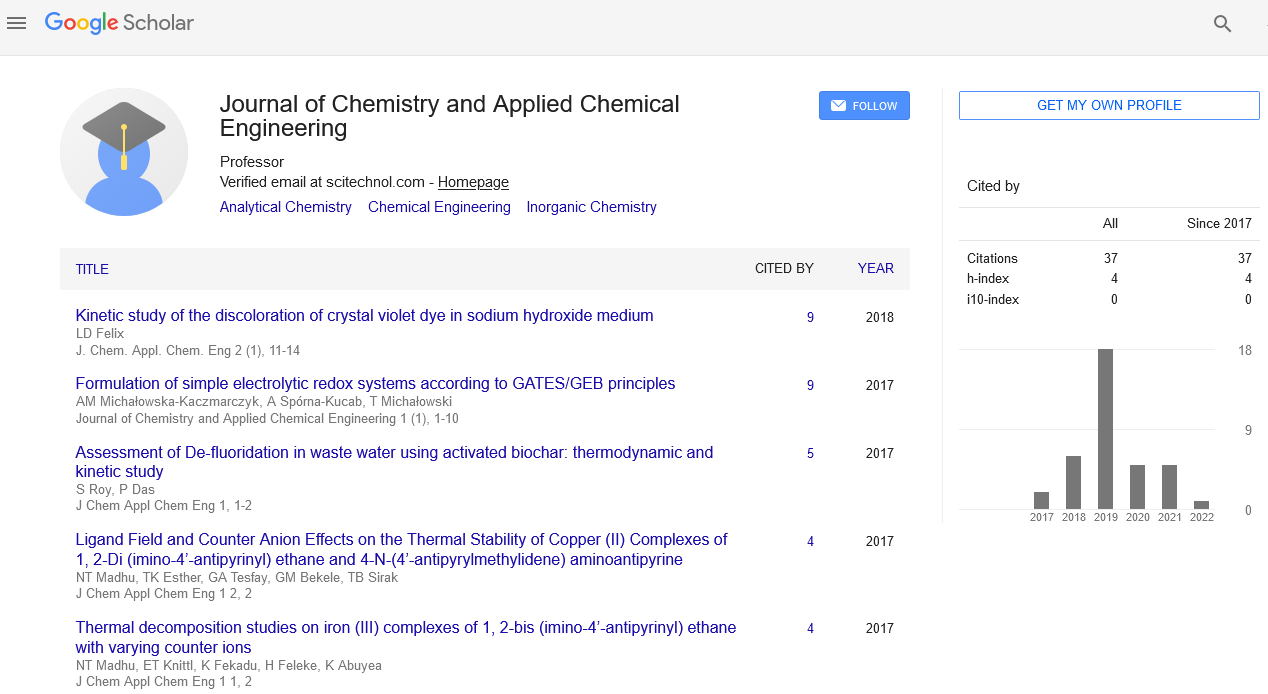Modeling phase change in a gas condensate reservoirs during condensate production
Benedicta Bilotu Onoabhagbe, Blessing Tosin Ubogu, Sina Rezaei Gomari, Paul Russell and Johnson Ugwu
Teesside University, United Kingdom
: J Chem Appl Chem Eng
Abstract
The purpose of this study is to investigate fluid phase change behaviour in a gas condensate reservoir during depletion, in determining the related problems encountered in well deliverability during production, and to evaluate optimization techniques that would enhance deliverability of a gas condensate reservoir. This involves the review of different techniques and methods to analyze gas condensate reservoir, the condensate saturation build-up of the system as a function of time to determine the occurrence i.e. wellbore distance and the sensitivity analysis of the different parameters and how they affect the well deliverability. A compositional study of a gas condensate fluid flow using a synthetic data was used to simulate the gas condensate reservoir by studying the compositional changes (i.e. C1, C2, C3, C4-C6...) of hydrocarbon component versus time and/or distance from wellbore. Several scenarios were included to validate the proposed technique in finding the time of condensate banking as well as its distance from well which in turn were used as guidance to optimize the condensate production. Typical scenarios such as water injection, gas recycling, and gas rate variations were adapted to study condensate banking in this study. The result shows that there is a considerable change in the composition of the fluid components with respect to the fluid phase changes as pressure decline. It is also demonstrated that the faster the pressure decline, the faster the change in phases and closer to the wellbore, which leads to significant condensate, lost. Studies scenarios based on proposed technique show that water injection with the minimum pressure decline produced a higher condensate recovery factor of 93% while gas recycling suffered from early phase change and reached to 66% of condensate recovery factor. Altering the gas production rate in the gas recycling case reduced the phase change near to wellbore hence produced a better recovery factor of up to 82%.
Biography
Benedicta Bilotu Onoabhagbe is a student of Teesside University, who is currently pursuing her postgraduate doctoral Studies from the School of Science, Engineering & Design (SSED) Teesside University, United Kingdom. She is a Scientific Officer at the Ministry of Solid Minerals, of the Federal Republic of Nigeria.
E-mail: beniebaby2k2@yahoo.com
 Spanish
Spanish  Chinese
Chinese  Russian
Russian  German
German  French
French  Japanese
Japanese  Portuguese
Portuguese  Hindi
Hindi 